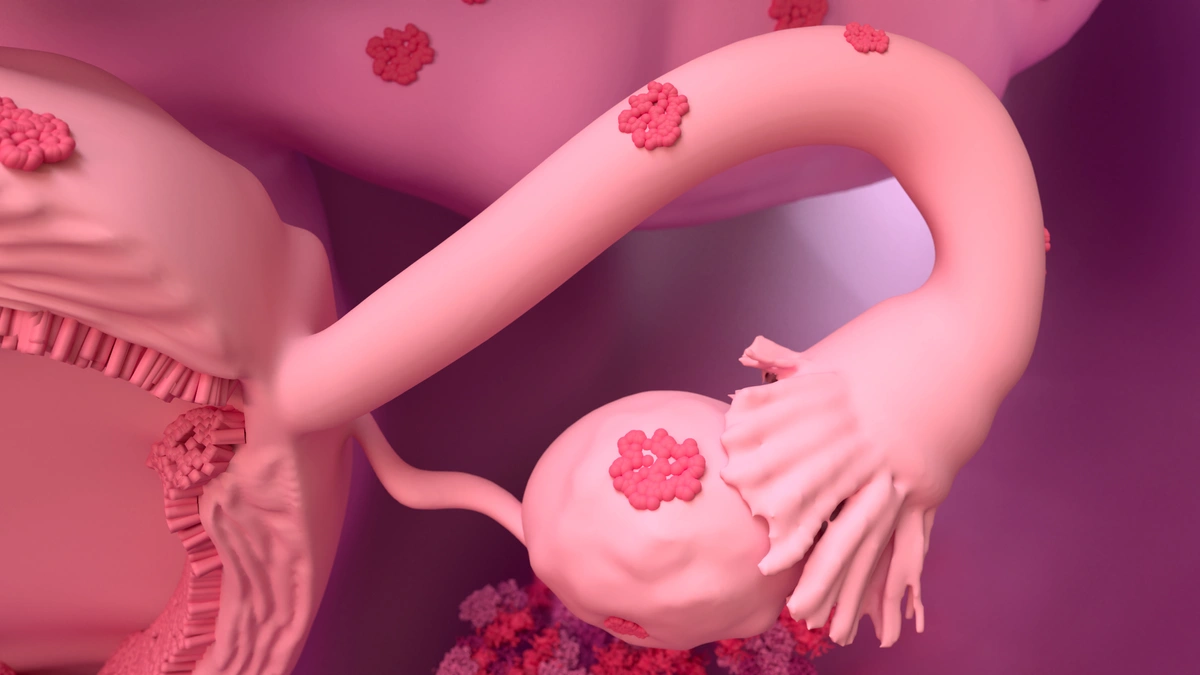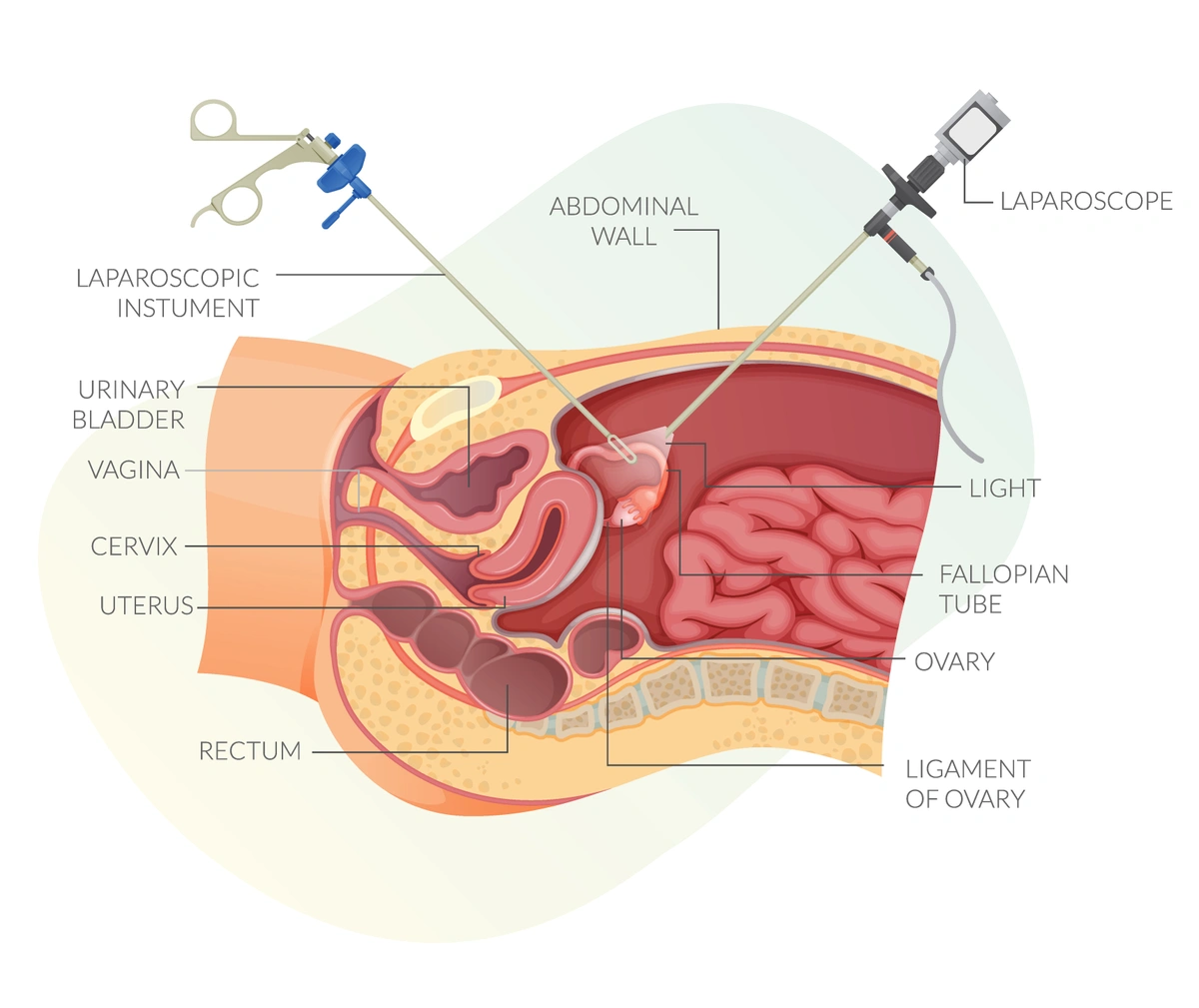
Endometriosis 101: Symptoms, Diagnosis, and Treatment
Endometriosis is a chronic condition that impacts millions of women worldwide. It’s estimated to affect 5-10% of women of reproductive age (15-49 years); however, it often goes undiagnosed or misunderstood. If you’re experiencing symptoms or struggling to conceive, understanding endometriosis is the first step toward finding relief and effective treatment.
What is Endometriosis?
Endometriosis occurs when tissue similar to the lining of the uterus (endometrial tissue) grows outside the uterus. This tissue often affects the ovaries, fallopian tubes, bowel, and bladder. In rare cases, it can spread beyond the pelvic region.
Despite being located outside the uterus, this misplaced tissue continues to act like uterine lining, thickening, breaking down, and bleeding during each menstrual cycle. However, because it has no way to exit the body, it can lead to inflammation, scarring, and cysts called “endometriomas” when it affects the ovaries.
Endometriomas illustration
What Causes Endometriosis?
While the exact cause of endometriosis is unknown, potential factors include:
-
Genetics: A family history of endometriosis increases the risk.
-
Immune System Dysfunction: An impaired immune system may fail to recognize and destroy misplaced tissue.
-
Hormonal Factors: High levels of estrogen may contribute to the growth of endometrial tissue outside the uterus.
Common Symptoms of Endometriosis
The hallmark symptom of endometriosis is pelvic pain, which is often more severe than typical menstrual cramps. Over time, this pain may worsen. Other symptoms include:
-
Painful Periods (Dysmenorrhea): Pelvic pain and cramping that begins before and extends into your period.
-
Excessive Bleeding: Heavy menstrual bleeding or bleeding between periods.
-
Pain During Intercourse: Discomfort or pain during or after sexual activity.
-
Painful Bowel Movements or Urination: Especially during menstruation.
-
Digestive Issues: Diarrhea, constipation, bloating, or nausea, particularly around your menstrual cycle.
Endometriosis can often be mistaken for other conditions, such as irritable bowel syndrome (IBS) or pelvic inflammatory disease (PID), which can delay diagnosis.
Endometriosis and Infertility
It’s estimated that up to 50% of women with endometriosis may experience infertility. This condition can interfere with conception by:
-
Scarring and Blockages: Adhesions and scar tissue can block the fallopian tubes or damage reproductive organs.
-
Ovarian Cysts: Endometriomas can impair ovarian function.
-
Egg Quality: Endometriosis may impact the number or quality of eggs available.
Despite these challenges, many patients with endometriosis can still achieve pregnancy with the right treatment plan.
How is Endometriosis Diagnosed?
Diagnosing endometriosis typically requires a combination of medical history, symptoms, and imaging tests. However, the gold standard for diagnosis is laparoscopy—a minimally invasive surgical procedure. During a laparoscopy, a doctor examines the pelvic organs for signs of endometriosis and may take biopsies to confirm the diagnosis.
Doctors also use laparoscopy to stage the condition based on severity:
-
Stage 1 (Minimal): Small lesions and limited scarring.
-
Stage 2 (Mild): More widespread lesions but minimal scarring.
-
Stage 3 (Moderate): Numerous deep lesions and some scarring.
-
Stage 4 (Severe): Extensive lesions, significant scarring, and large endometriomas.
Laparascopy illustration
Treatment Options for Endometriosis
Treatment for endometriosis depends on the severity of symptoms, the age of the patient, and their family-building goals. Here are the most common approaches:
Medications
-
Hormonal Therapy: Birth control pills, patches, or hormonal IUDs can reduce pain and suppress the growth of endometrial tissue.
-
Aromatase Inhibitors: These medications block estrogen production to slow tissue growth and relieve pain.
Surgical Treatment
Laparoscopic ablation of endometriosis may slightly improve a woman's fertility, but typically only in women with mild to moderate disease.
Fertility Treatment
For patients struggling to conceive, assisted reproductive technologies (ART) like in vitro fertilization (IVF) can bypass many of the challenges posed by endometriosis. IVF is especially effective for:
-
Patients over 30 with severe endometriosis.
-
Patients who want to maximize their chances of conception.
Not all cases of endometriosis require aggressive treatment. Women with mild symptoms or those not trying to conceive may benefit from pain management strategies or hormonal therapies. However, if symptoms significantly affect your quality of life or you’re trying to get pregnant without success, seeking expert care is essential. At Tennessee Fertility Institute, your physician will work with you to determine a personalized treatment plan for your unique situation.
Why Early Diagnosis Matters
Endometriosis is a progressive condition, meaning it can worsen over time. Early diagnosis and treatment can:
-
Relieve pain and other symptoms.
-
Prevent further damage to reproductive organs.
-
Improve fertility outcomes.
At TFI, we understand the challenges of living with endometriosis. Our team of fertility specialists is dedicated to providing personalized care, from pain management to advanced fertility treatments like IVF. If you suspect endometriosis or are struggling to conceive, schedule a consultation with us today. We’re here to help you take the next step toward relief and achieving your family-building goals.



